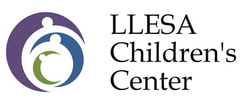About the Program:
The Infant/Toddler Classroom is designed to meet the individual needs of each child by creating a nurturing, hands-on play environment for the children. All infants and toddlers receive holding and nurturing throughout the day by their primary caregiver and other staff as well. We believe that this close contact with infants and toddlers helps them to form significant bonds and attachments. We also believe that holding and cuddling are an important part of each child’s day. You often observe the staff rocking the children, holding them on their laps, and in general, “being with the children on their level” which is generally on the floor. When we sit at their level we open their opportunities to initiate interaction with us.
The environment is designed to be warm, safe, inviting, and challenging. The classroom is coordinated to challenge the various ages of infants and toddlers in the room at any given time, and we continue to make the environment challenging as they develop. Throughout the child’s experience, their caregivers keep track of developmental changes and set appropriate goals for each child. Goals serve as guidelines for caregivers as they plan activities for their group.
We plan and implement developmentally appropriate activities that promote fine-motor, gross-motor, cognitive, language, socialization, and emotional growth. We provide a variety of indoor and outdoor activities for the children to choose from during the day. Our activities are more process than product oriented. We feel, at this age, children learn more through the process or stages of an activity than by focusing only on an end-product.
Our child-centered, relationship-based curriculum is further enhanced using the Program for Infant/Toddler Care (PITC) philosophy and essential practices. The PITC philosophy is a commitment to provide a style of care for infants and toddlers that best matches their inborn capacities and needs. This type of care is both relationship-based and responsive. PITC’s 6 Essential Policies increase the likelihood that close and responsive relationships develop in our program. The 6 Essential Policies/Practices include the following:
The Infant/Toddler Teachers are eager to help. If you have any questions, comments, suggestions, etc., for our program please feel free to speak to us about them. We look forward to getting to know you and your infant/toddler!
The environment is designed to be warm, safe, inviting, and challenging. The classroom is coordinated to challenge the various ages of infants and toddlers in the room at any given time, and we continue to make the environment challenging as they develop. Throughout the child’s experience, their caregivers keep track of developmental changes and set appropriate goals for each child. Goals serve as guidelines for caregivers as they plan activities for their group.
We plan and implement developmentally appropriate activities that promote fine-motor, gross-motor, cognitive, language, socialization, and emotional growth. We provide a variety of indoor and outdoor activities for the children to choose from during the day. Our activities are more process than product oriented. We feel, at this age, children learn more through the process or stages of an activity than by focusing only on an end-product.
Our child-centered, relationship-based curriculum is further enhanced using the Program for Infant/Toddler Care (PITC) philosophy and essential practices. The PITC philosophy is a commitment to provide a style of care for infants and toddlers that best matches their inborn capacities and needs. This type of care is both relationship-based and responsive. PITC’s 6 Essential Policies increase the likelihood that close and responsive relationships develop in our program. The 6 Essential Policies/Practices include the following:
- Culturally Responsive Care that supports the infants’ identity formation and leads to strong family connections
- Inclusive Care that supports all infants, including those with special needs, in developing emotional security and competence
- Primary Caregivers who are primarily responsible for meeting an infant’s physical and emotional needs
- Small Group Care that supports caring for children in small groups that encourages social relationships
- Continuity of Care by providing the same caregiver for each child and their peer group together for an extended period of time
- Individualized Care is provided that is responsive and respectful to each individual child
The Infant/Toddler Teachers are eager to help. If you have any questions, comments, suggestions, etc., for our program please feel free to speak to us about them. We look forward to getting to know you and your infant/toddler!
The Infant Room teachers helped tremendously when I was first heading back to work, making me feel comfortable and welcome. The babies play in a fun, safe environment, and the staff is caring and attentive.
~ Amy, LLNL - NIF HED Science
Proudly powered by Weebly
